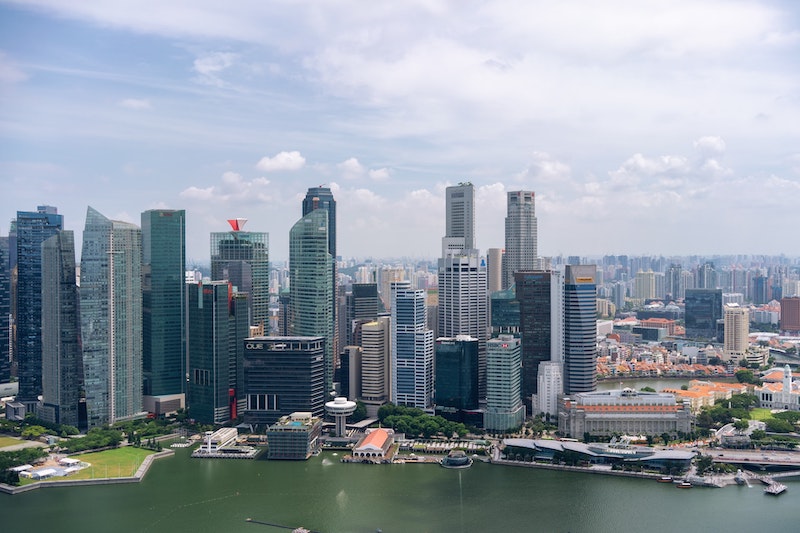After you have formed a company in Singapore you will need to hire employees. These employees can be both foreign and local. When hiring the residents of Singapore (including permanent residents and citizens of Singapore) the procedure is relatively simple, and we will break down the contractual requirements of doing so further in the article.
The pros of hiring locals in Singapore include: not having to deal with immigration issues, low cost, and no relocation expenses or logistics involved due to their proximity. Local knowledge helps businesses know what’s going on with their customers and how best to operate in that country.
However, if you want to hire foreign employees to work in a Singapore-based company, you will be required to apply for work visas, such as work permits, employment passes, or the ‘S’ pass.
The reason behind most companies hiring a diverse pool of workers from all over the world to supplement the local workforce of Singapore is because of an aging population, a declining birth rate, and the unavailability of local candidates with certain skills.
With these in mind, let’s check out the contemplations that must be kept in mind while hiring in Singapore.
Singapore has a strong Employment Act to protect workers’ rights
The Employment Act, enforced by the Ministry of Manpower in Singapore, applies to both the residents of Singapore and foreign employees. The relationship between the employee and his employer is almost wholly regulated by the contract in Singapore. The primary legislation for governing the employment, hiring, and dismissing the employees is placed under chapter 91 of the employment act. Although both employers and employees are free to place the clauses as they wish in the contract, this contract is subject to some statutory requirements under the Employment Act (EA) and the normal law.
The employment contract is also termed as an employment agreement, offer letter or appointment letter in Singapore. Notably, the definition of an employee according to the EA does not include those who work as domestic workers, seafarers, or who are in executive and managerial positions earning more than $4,500 monthly.
EFMA outlines the responsibilities related to employment
The employment of foreigners in the city-state of Singapore is governed by EFMA (Employment of Foreign Manpower). Apart from this, some employment laws in Singapore also apply to foreigners notwithstanding the clauses included in the contract. It includes maternity benefits, compensation for workplace injuries, and childcare leaves for working parents. All foreigners wishing to work in Singapore are required to have work visas granted by the MOM or Ministry of Manpower before they begin their stint working for an employer in the country. These visas can be an employment pass, S pass, or work permit.
Foreign employees must have a valid pass (or work visas) to work in Singapore
The work permits are issued to the workers with basic skills from an approved country. This also depends on the sector in which the worker is going to work. A notch above the work permit is the S class visa and it is issued to middle-level skilled foreign workers such as technicians. The most popular visa in Singapore is the employment pass which applies to executives, managerial personnel, and professionals. Hiring in Singapore without a company registered in the country is possible, however, it is a good idea to recruit the PEO services of an International Payroll company for the process. You have to inform your foreign employees about the process as well, it is recommended to hold meetings online so you clarify to them about the documents and the procedures. Use remote interpreting platforms to translate the meeting if needed, so there is no risk of misunderstandings.
Signing an Employment contract is important in Singapore
Generally speaking, an employment contract in Singapore has to include these things:
- Work commencement date. It can include the probation details as well if they are applicable.
- Details of salary. This must include the basic pay and also the various allowances. Singapore does not stipulate a minimum wage or bonus for the employees. However, the EA mandates that the salary has to be paid every month and within seven days of the end of the period. Generally, one month’s salary is paid as a bonus to the employees of Singapore.
- Job and responsibilities profile.
- Working hours. The contract can include provisions for overtime if it is applicable. The provisions made by the EA for the employees not working for more than 44 hours a week apply only to the person earning less than $2500 a month.
- Annual leaves. The minimum statutory requirement for annual leave is up to 14 working days. It applies to the workers depending on the duration of their employment. The contract can also include the ways of applying for a leave. The Manpower Ministry stipulates that the provisions for the annual public holidays are followed strictly by all employers in Singapore.
- Sick leaves. The minimum leaves for sickness and hospitalization apply to the employees coming under the EA. If there are to be any sick leaves without pay they should be included in the contract. The EA doesn’t have a stipulation for arranging health insurance for the employees.
- Childcare and parental leave provisions. The maternity provisions made for the Singapore residents are different from those made for the foreign workers. For the locals, they are 16 weeks while for the foreigners this period is 8 weeks.
- Notice period and termination. A resignation or a termination notice must be provided in writing.
- Clauses for confidentiality.
- Laws governing the contract. These contracts are governed by Singapore law.
Hiring Part-Time Employees in Singapore
To cut costs, many companies in Singapore are increasing both the number of freelancers and part-time employees. Using the services of such employees in the long term is more effective in certain economic costs. Firms seek to complete projects requiring a more specialized skill set without setting up a new department within the company. And the reason why people like part-time work is because it allows people to have more free time away from the office, a better balance between life and working hours, or even just an introduction before transitioning into full-time jobs.
This is expected to lead to increased life satisfaction as well as their performance in Singapore. In addition, part-time work has been shown to have a positive effect on performance. Most importantly, hiring an employee on a part-time basis is the same procedure as regular recruitment:
- The employer concludes a contract with the future employee.
- The employee obtains a work visa, which the Ministry of Human Resources issues.
- The employee finds accommodation at his own expense and goes to work in Singapore.
In Singapore, part-time employees are also entitled to be paid for overtime work. The exact payment is influenced by the comparison of part-time workers working hours and that of a similar full-time worker. For a part-time worker, paid public holidays are included too! They are also entitled to paid annual leave and sick days. Maternity/paternity leave is also available for eligible individuals who wish to take time off as well.
The main requirement for work is the compulsory knowledge of the English language since it is impossible to count even on a part-time job without it. For this reason, it is recommended to improve your language skills before planning employment in Singapore. Applicants must have minimum work experience. Otherwise, jobs in Singapore are no longer possible.
Conclusion
Once you want to hire employees for your company in Singapore, check the list of the requirements that you will have to address. It is necessary that you read the Employment Act of Singapore before you start the hiring process. If you are seeking to hire foreigners, you have to follow the rules set by the EFMA. Your employees will have to be provided with a working visa in order to start working. And for the end, you should write an employment contract that contains the usual detailed information written in other employment contracts in Singapore.
This article was contributed by guest writer, Regina Walt. Regina Walt is a HR Manager with five years of experience. She helps companies by coordinating, supporting the recruitment process, and managing company staff. She has a demonstrated history of helping businesses with growth decisions and HR solutions. Regina is passionate about reading and writing. She has contributed to a lot of websites with articles related to different business fields.























